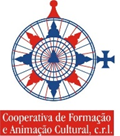Projects
ABC-MDR-REVERSAL - Multidrug Resistance Reversal in Cancer Through a Novel Allosteric Mechanism

PI Daniel José Viegas Antunes dos Santos
CBIOS team members
Patrícia Dias de Mendonça Rijo; Andreia de Almeida Rosatella; Vera Mónica Sousa Isca; Gabrielle Bangay; Pedro Suzano
From 2024 - Present
Description
Multidrug resistance (MDR) is characterized by complex resistance mechanisms that protect cells from compounds with different chemical groups and modes of action. It is prevalent in all forms of cancer, one of the greatest health challenges present in modern society, as well as in drug-resistant bacteria and fungi.In this project, we intend to target the primary mediators of MDR in cancer (ABC transporter protein family) through a novel therapeutic approach and mechanism, recently discovered in the PI group.
Within the ABC family, there are three main transporters responsible for MDR in cancer: P-gp/ABCB1, MRP1/ABCC1 and BCRP/ABCG2. However, multidrug-resistant bacteria
(MDRB) is becoming also a serious problem. In 2019, antimicrobial resistance killed more people than HIV or malaria and antimicrobial resistance is predicted to cause 10 million deaths by 2050 (cancer: 8.2 M). Therefore a completely new paradigm to tackle MDR mediated by ABC transporters is needed and is proposed herein.
Despite the large evolution in knowledge involving MDR related efflux, no compound passed clinical trials into general use. Therefore, the search for efficacious and safe P-gp inhibitors is urgently needed. However, signs of real clinical progress in using ABC transporters as pharmacological targets were already reached:
- In 2012, ivacaftor (VX-770) was approved for therapy in cystic fibrosis patients with the G551D mutation on ABCC7;
- more recently, in 2021, encequidar (HM30181A) was discovered as the first-in-class intestine specific P-glycoprotein Inhibitor.
The team as been studying ABC transporters with great success to understand the detailsregarding the efflux mechanism and to understand how and where allocrites and inhibitors interact with the transporters, and the details about allocrite recognition and signal propagation leading to efflux. Moreover, Dr. Daniel dos Santos group recently identified and characterized two allosteric drug binding sites (aDBSs) by means of in silico fragment- based molecular dynamics and tested a small library of thioxanthone and flavanone derivatives. Several compounds were experimentally assayed and identified to be able to decrease the verapamil-stimulated ATPase activity.
The ABC-MDR-REVERSAL project proposes to rationally discover and design novel ABC modulators acting through this novel allosteric mechanism.
Funding entity
ILIND/COFAC reference: MDR-REVERSAL

